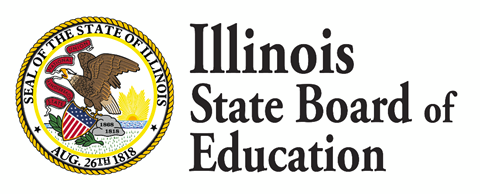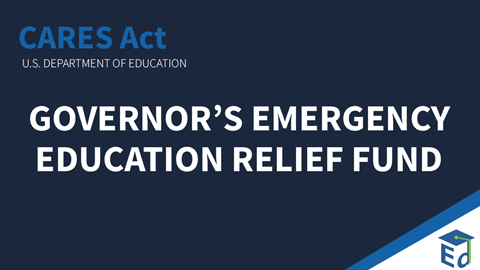Illinois green-lights in-person summer school – By Mila Koumpilova, Chalkbeat
The state of Illinois will allow school districts to host in-person summer school, with some restrictions to protect against the spread of coronavirus.
The announcement late this week represents a reversal for the Illinois State Board of Education, which had previously recommended that districts provide summer school only online.
The new guidance comes after a state advisory group focused on what activities can be safely allowed under Phase 3 of Gov. J.B. Pritzker’s five-phase plan to reopen Illinois.
The state stressed it’s not suggesting a return to pre-pandemic summer school, but rather an approach that relies on social distancing, limits on gatherings to 10 people, and mandatory protective equipment such as face masks.

All states now approved for emergency education funding – By Linda Jacobson, Education Dive
It was close, but all 50 states and the District of Columbia have applied and been approved for the Governor’s Emergency Education Relief Fund — a relatively small block grant within the federal Coronavirus Aid, Relief, and Economic Security Act, but one state leaders have wide discretion in how to spend.
The U.S. Department of Education extended the deadline by a week, until June 8, but "it turns out the extension wasn’t needed, since everyone had applied by the end of the day on Monday," according to a department spokesman.
The awards — which range from more than $355 million for California to about $4.4 million for Vermont — are unusual in that governors can use the money for “needs related to COVID-19” at either the K-12 or higher education levels. Details about how governors plan to divvy up the funds, however, have been slow to emerge.

National JUUL Litigation Team Files Suit on Behalf of the Los Angeles County Office of Education and San Diego County Office of Education to Hold JUUL Labs, Inc. Accountable for Impeding District-Wide Education – By the Associated Press on OA online
A national coalition of law firms has filed two lawsuits on behalf of two County Offices of Education against JUUL Labs Inc. for its role in creating an e-cigarette epidemic and resurgence in youth nicotine addiction that impedes the learning environments in schools across California. The lawsuits were filed on behalf of the Los Angeles County Office of Education and the San Diego Office of Education.
The LACOE is the largest regional education agency in the country and provides programs and services to 80 school districts in the county and more than 2 million preschool and school-age children. The SDCOE supports nearly 780 schools and more than 500,000 students and provides services to 42 school districts, 124 charter schools, and five community college districts in the county.
These Offices join 31 California school districts that have also filed to take a stand against JUUL’s promotion of dangerous and addictive products.
The lawsuits seek injunctive relief and abatement remedy to combat the e-cigarette epidemic, which has severely impacted the school districts by interfering with normal school operations. The districts are also seeking compensatory damages to provide relief from the districts’ financial losses as a result of students being absent from school, the extensive costs to orchestrate outreach and education programs regarding the risk of vaping, and deploying the enforcement restrictions – such as vape detectors, surveillance systems, and staff to monitor the school’s property in an effort to combat the e-cigarette crisis.

Reopening Florida universities will take ‘shared responsibility,’ education leaders say – By Megan Reeves, Tampa Bay Times
Shared responsibility will be key as Florida reopens its public universities to about 500,000 students and faculty this fall, state education leaders said Thursday.
Students, faculty, staff and even vendors and visitors at the State University System’s 12 schools should expect to undergo health safety training, COVID-19 testing and contact-tracing as needed, according to guidelines approved by the system’s Board of Governors.
“The traditional campus experience for students will be different from past years," the guidelines read, promising that the college experience “will still be positive and rewarding." Board members have said they are committed to getting students back on track with academics, and eager to eventually offer some activities, too, if deemed safe.
The guidelines were developed by a task force organized earlier this month by board Chairman Sydney Kitson. The group, made up of university presidents, trustees and others working in health and emergency management, has met weekly.












